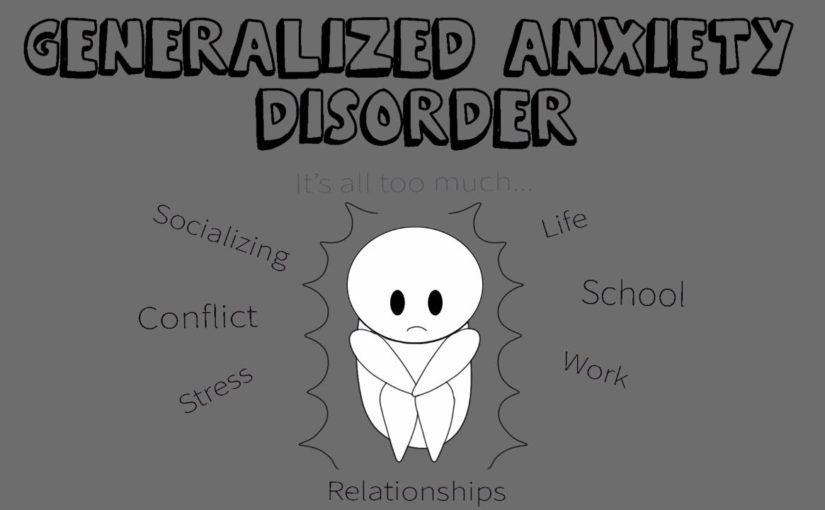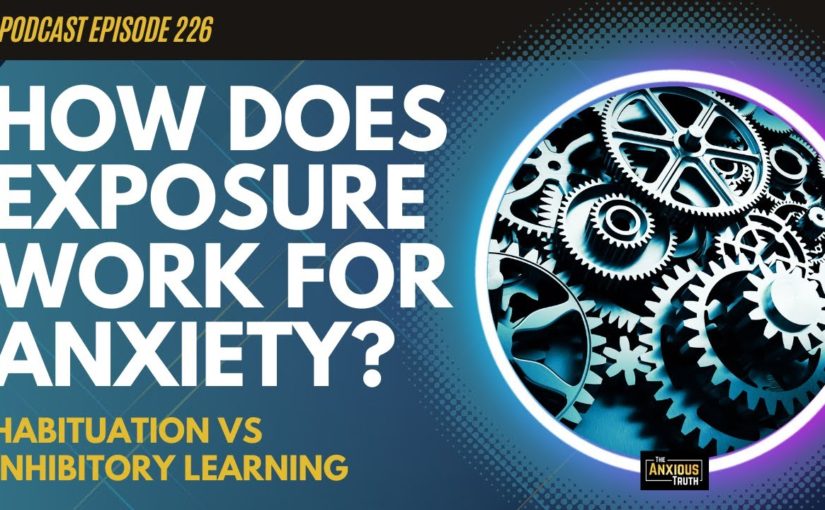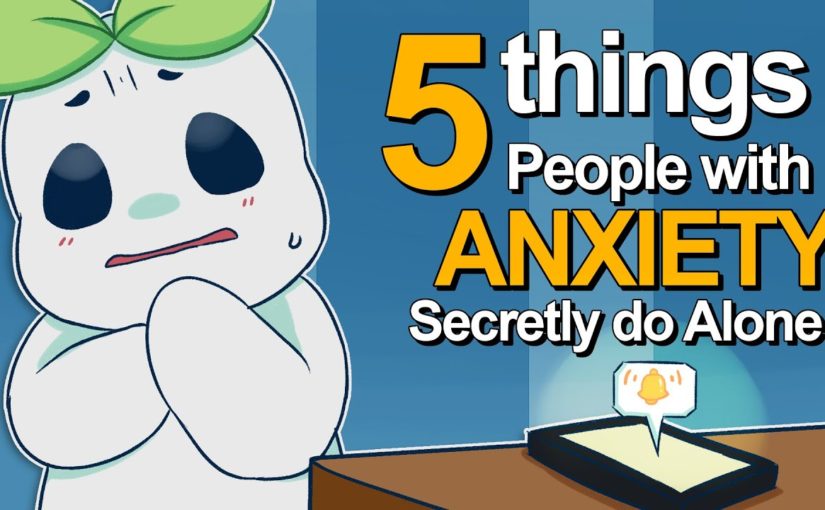Drew Linsalata This week on the anxious truth. We’re going to get a little geeky with it. We’re going to talk about how exposure works. Why sometimes? It only works part of the way and you wind up prone to setback or relapse. We’re going to talk about habituation versus inhibitory learning. I promise not to get too technical. We’re going to keep it friendly. Let’s go Hello. Everybody welcome back to the anxious truth. This is podcast episode number two to six recording in September of 2022. I am Drew Linsalata creator and host of the anxious truth. If you are new to the podcast or the YouTube channel and have just stumbled on the anxious truth is the podcast that covers all things: anxiety, anxiety disorders, and anxiety, recovery. Welcome. I’m happy you’re here, And I hope you find it helpful If you are a returning listener or YouTube viewer. Welcome back, Always happy that you’re here. Thank you for your continued support. Today we are going to talk about the mechanics of exposure, how exposure works sometimes and why sometimes it doesn’t work fully and why some people wind up in setbacks, and how we can maximize the value of our exposure. Essentially, this was requested by a lot of people when they asked about the difference between habituation and inhibitory learning, So it’s gon na get a little bit technical and a little bit geeky, but I’m such a nerd about this stuff. I dig this way back in school, at the masters level, to go through all of this stuff, But I promise I’m going to keep it a little bit friendly and that we’re not going to get too technical here. I’m going to keep it within the context of recovery, So before we get to the meat and potatoes of the episode, I just want to remind you that the anxious truth is more than just this. Podcast episode There are 200, something other free, podcast episodes. There’s a bunch of years worth of free social media content. There’s my free morning newsletter and podcast called The Anxious Morning. There are three books that I’ve written about anxiety and anxiety disorders and recovery. There is a free one-hour recovery, one on one seminar and there is a webinar that I do every month with my friend Joanna hardest. She’s an anxiety and OCD specialist from Cleveland. We do a webinar on the art of distress, and tolerance. All of those things are the anxious truth. Com Go check them all out. If you are already reading my books and you’re digging them maybe head on over to Amazon and review them for me, it helps me out And if you are enjoying my work, it is helping you and you would like to help to keep it Free of sponsors and advertisers All the ways that you can do that are at the anxious truth, com support. It is never required, but always appreciated, And thank you guys for all the different ways that you support my work. I appreciate every one of you So let’s get into this habituation versus inhibitory learning, So we know about exposure and we know about going toward the things we fear and not avoiding or trying to escape. We’re not trying to engineer our life so that we never get triggered. We know that exposure is an effective tool when it comes to anxiety disorders. We’re going to start from that premise because we know this to be true, But how does it work? I’m going to give you the TLDR. It the too long and didn’t read if you want to stop listening now ready Here. It is Old school exposure based on habituating to anxiety, which is all about learning that you’re, okay, as long as anxiety decreases or disappears Now that sort of works, But it leads to a fragile state of recovery and frequent relapses and setbacks. Current models of exposure are, in many cases a little bit harder. They’re a little harsher, but they’re based on learning that you are okay and can handle it even when or if you get anxious or panic. That leads to more durable and wider states of recovery, So habituation will get you to I’m okay. As long as I don’t get anxious, whereas inhibitory learning we’ll when we allow it to happen, we’ll get you to. I’m no longer worried about being anxious. It doesn’t matter Now, which do you think is better? I can tell you this when you encounter a fully recovered person that does not experience relapses or setbacks. You’re talking to somebody that wound up with the second result, not the first Alright, so that’s like the Reader’s Digest version of this episode. If you want to hit the eject button, go ahead and do that now, But we’re gon na get more detailed, So this can get super technical and geeky as I said, but I’m not going to get technical and geeky on you here. Now I could link a bunch of research papers in the show notes for this episode, which will be at the anxious truth com two to six, But that is probably a bad idea, And here’s, why. I know that many of you listening wind up almost obsessively researching recovery techniques and methods reading and reading and trying to make sure that either you have the best way to guarantee that you are doing it right because you need to do it right to Try to guarantee that you absolutely will recover or to get immediate relief. It can be way too easy to dig yourself into a ditch and a hole based on obsessively trying to research recovery and get it exactly right. So you can Google on your own. If you must, but I’m going to say if you are prone to that kind of habit, Please sort of think twice about doing that. Alright. So a few important points point that we want to get into here I’m working from notes today, which is a little bit unusual, but it is a little technical. So I want to make sure that I hit all the points So exposure. Let’s talk about exposure Exposure is not the thing that you are doing: right, driving, walking staying home alone, or holding a knife in your hand that’s not the exposure. The exposure is to the sensations, thoughts, and emotions that you will experience when you do those things right. So nobody listening to this podcast is using exposure to learn how to drive again or to walk to the park or nobody’s. Doing listening to the podcast to learn how to stay home alone or to hold a knife, We’re learning, and you’ve heard me say this so many times, probably sick of it. By now, we’re learning how to relate differently to the way we feel when we do those things. This is important, right? Keep this in mind as we go through this podcast episode. The exposure is the anxiety, the symptoms, the thoughts, the sensations all of those things, the emotions that are the exposure. We only use driving staying home alone, and holding a knife to trigger those things. So keep that in mind. Exposure is about coming into contact with good exposure right Where we’re going to try to leverage the mechanism mechanism of inhibitory learning. Good exposure is about coming into contact with those sensations. Those scary thoughts, then the emotions, the feelings, the symptoms, or trying to come into contact with those things, while also resisting the urge to perform safety rituals or compulsions that you are hopeful will take away the bad feelings And the fear that, because you hate that right, So what are some examples of that would be going home when you panic at work, if you’re out trying to practice driving turning the car around when you get anxious, while you’re driving and going home like exiting the exposure, only Doing certain things with a safe person Using safety devices like men,’s or snacks, or essential oils or ice packs, or always having had water with you in case you get anxious Another one would be automatically calling somebody a partner or a friend or somebody to Have them talk you through? If you get anxious And the last one is, I mean I’m involved in this one instantly. Turning on a podcast episode, when you get anxious, If you start to feel yourself panic, if you immediately run for your favorite episode of the anxious truth or your anxiety, toolkit or the panic, pod or all the hard things, whichever podcasts you like, if you immediately Run to a podcast episode that’s a safety and escape behavior right. Do you do any of those things? So let’s talk about those things that speak to the idea that when I do difficult things I’m trying to make my anxiety decrease. I need to make it a lesson that speaks to habituation Right? Habituation is a natural process, humans and animals habituate. So the idea of habituation is that you start to get used to it right When we looked at exposure based on habituation getting used to something so so that your reaction to it decreases. We kind of had that right, But we were missing some important parts of the puzzle And when we looked at some of that, when I say wave the royal way, everybody in the behavioral sciences and clinical circles, not me and you. But when we looked at this stuff over time, we started to see that hey CBT is super effective, like old-school CBT. That was just you know, exposure get used to it, get used to it, and then it goes away. When we looked at the success rates there, they were way better than other forms of therapy. True but then the relapse rate was pretty high Right, So the relapsing setback rate was pretty high with that And what is the situation we find ourselves in now? Is that a lot of people, because they tried to get a basic understanding of exposure like okay? I get it, I just have to do the things. So if you think that exposure is just doing things, then you are kind of accidentally relying on habituation. You expect that, if I do it, then anxiety will lessen over time because I’ll get used to it And yes again, that happens. Habituation is part of this for sure all the time, But that’s kind of an old-school way where exposure was done incrementally Sounds familiar right? Lots of repetition Sounds familiar, but more simplistically, simply trying to get someone acclimated or habituated to anxiety. So if you are hoping that you can just keep pushing through your exposures and engineering them so that they are as easy as you can make them and remember our list of safety behaviors, then you are purely banking on habituation to get you to a recovered state. What’s the problem with that? This often leads to partial recovery or good enough recovery. The acceptable bubble you hear me talk about this is where you can do most of what you need to do and manage life daily. You’re not completely restricted anymore, but you’re usually doing that with a big set of conditions and restrictions. So I’ll get I’ll. Give you a couple of examples. I can do the school pickup now, But if I’m having a really bad day, my partner does it. I bet this one. I can stay home alone now As long as they know that they’re or someone around that. I can call in case. I get anxious or have at this one I’m pretty good at handling my intrusive thoughts now, But I still can’t watch any movies that have babies in them or I spiral Right So that’s sort of good enough recovery. Partial recovery is acceptable, but a bubble recovery that kind of recovery has a limit. And when you cross that limit, you often experience anxiety and fear again, which you then think you can’t handle, because you’re not used to it in those contexts across your limit lines right? So a partially recovered person does some things with conditions but refuses to do other things because of how they might feel if they do them A partially recovered person just got used to it by powering through over and over and over or learned how to make It stop or lesson will tell you that they are okay in the supermarket, but still can’t go to the movies and are afraid to try So fear extinction, which is like an old term that we used to use you’re trying to make Your fear go extinct Based on habituation, tends to be very specific like habituation is okay, But it essentially teaches us that we are okay as long as we can be sure that anxiety won’t be there or it won’t last very long, And we see this when a partially recovered person may experience one or two episodes of intense anxiety and then winds up in a setback or relapse. Now, as a side note a little bit of geekiness that I’ll throw in here, we kind of know that we never actually unlearn our fear right? That’s, not a thing. I know we talked about that And I mean other literal people who are sort of building a brand on unlearning anxiety, but you don’t unlearn that fear response, So that response is kind of coded permanently in your brain once we learn it and we Have experiences that are associated with that response And this kind of helps to explain how sometimes setback and relapse are so easy for people to fall into to some extent right. We’re, not unlearning our fear. What we are doing when we recover is that we are learning new ways to relate to it and new ways to handle it and new ways to get through it And those new pathways get encoded into your brain alongside the old pathways. So you will still kind of have that fear for the rest of your life, But that’s, okay, Because now you have stronger pathways that you can travel down in your brain is a gross oversimplification just for visualization purposes. When, when it comes up, I can pick that pathway as opposed to the old one, but the old one is still there. We never actually unlearn it if you will erase it. So if we’re aiming at fear, extinction, or making your anxiety go away, relying solely on habituation, getting used to it, just repeating it enough, so that you get used to it, makes for a bit of a fragile state, full of conditions and prerequisites for being. Okay See the problem there So now let’s go into inhibitory, learning, enter inhibitory, learning, So inhibitory, learning, isn, ‘t so much concerned with making anxiety go away as it is concerned with teaching us that we can tolerate and navigate through anxiety when it happens And at this point, you’ve got to be sick of hearing me say words like tolerating and navigate You’ve heard me say them 1000s of times, but now you’re starting to understand the reason. So let’s bring it back to some of the things you hear me talk about on this podcast And you see me write about all the time when you hear me talk about changing your reaction to anxiety and fear or giving up the fight or surrendering All those words that I use all the time, Where are we are in inhibitory learning territory there. When you hear me tell somebody to mix up their exposures and have varied experiences, because that’s most effective, We’re banking on the mechanism of inhibitory, learning right, it works better And again. This is a lot of research on this. It works better when we have a varied range of experiences to work from When I tell you to be incremental and keep adding difficulty to your exposures over time. We need them to be difficult. We’re leveraging the power of how inhibitory learning works in your brain And when this is a big one when and it’s a big one. To me, to be honest with you, When I plead with you when I’m practically begging you to take the lessons that reality hands you, and I did an entire podcast episode on this one. I’ll link it in the show notes because I don’t remember which one it is When I beg you to. Please take the lessons that the universe hands you after an exposure that nothing happened, except that you were afraid and had thoughts and sensations. I am pointing you in the direction of inhibitory learning when you refuse to take that lesson Yeah, but I had I was anxious I was afraid, but I panicked You’re, you’re saying I can only be okay. If I don’t panic – or you can only be okay if it decreases, You’re, relying on the fact that you might get used to it That’s the habituation model, I’m simplifying. But when I tell you, no, you it doesn’t matter. You just have to take the lesson that said you’re afraid, but nothing bad happened. I’m trying to get you to move closer to the way your brain works in terms of inhibitory learning, So it’s important for me. I think to say that inhibitory learning it’s not so much a technique like this isn’t a technique. It’s, not a method. Inhibitory learning is not a method. It’s more of a model that we came up with to describe how brains achieve a wider and more durable state of recovery. I’m relating it to recovering from an anxiety disorder, so be careful. Like don’t go to a therapist and say: do you do inhibitory learning here I mean a good therapist who specializes in anxiety sort of should understand what you’re saying, But they would correct you like inhibitory learning is not a therapy. It’s. This is not a therapy type, It’s, not a method. It’s not a technique. It’s a model that we use to describe what’s going on in our brains. When we learn more deeply and effectively that we’re okay – And we can get better that way, Alright, it’s a different way to get better And our brains are. We can do it. We just have to make sure that we do things that use the power of our brains to be able to do those things. So this is not so much about guaranteeing that your fear goes extinct, which would be the old way, But rather it’s about knowing that. Even if you do wind up afraid, you’re still, okay And you can move through and past that. This is why, if I have a rare panic, sell panic attacks now, but they’re very rare for me. If I have one a comes, it goes. It’s over. I’m, literally not thinking about that panic attack an hour later. I just don’t care, So you know this ties into some of the other things that we’ve talked about, And I just wrote about this in the anxious more newsletter last week. How can I not care? Well, the mechanism of inhibitory learning, if you gear your exposure to take advantage of the fact that your brain can do it, that way, will teach you that you, don’t have to care. So it’s not like you, can just snap your fingers and decide to not care about your anxiety. You can stop trying to do that because it’s not going to work, But when we leveraged the inhibitory learning model and our exposure work and our recovery work, we learned that it’s, okay, to not care anymore right? So it’s really important. That’s, why I say we’re learning this way, newer ways that, even if we do end up anxious and afraid we’re okay can move through it at that moment and then past it going forward in the long term. So then, let’s bring it back to sort of recovery And what that means, Because if we don’t have, we have no way to apply this in what we do, the things we do to try and get better then we’re good at it, So I can give you some hints here and I’m – going to wrap it up in a couple of minutes here. I don’t want to get too long on this one. I literally could go for hours on this stuff. It’s, goofy, I don’t know why I’m so into this, but I always have been So. That explains, I guess why I’m behind this microphone Anyway. What are the hallmarks of exposure and recovery work? That kind of taps into the power of that inhibitory learning process right, So your exposures should be focused on tolerating and navigating through anxiety, not making a decrease. That is huge Because if you’re approaching your recovery, so that’s okay Drew says, I have to do scary things. I’m going to do scary things, But I’m going to try to make them as less scary as possible Because I don’t I’m trying to make the anxiety not happen or happen at a low level. You’re missing the point. You want the exposure to teach you how to tolerate that anxiety and move through it. Yes, even full-blown panic. So some of this, if you’re going to try to gear your recovery work toward this model. Some of that involves an openness to say: if you insist that panic is too much and you can’t do it that way, then that’s – okay, I’m not going to try to convince you otherwise, But you can’t. Have it both ways? You can’t draw a line in the sand and say I cannot tolerate certain levels of anxiety and also want to do this. You can’t have both, So you got to have that openness to accept that this might be true and that what I’m saying might actually work for you And that you actually can do things. You think you can, And you have to focus your exposures on the act of tolerating and moving through anxiety, not trying to make it not happen. So if you’re gon na go drive on the highway today and you’re going to try and find ways to do that without being anxious, you’re missing the point. You want the anxiety you want that to happen, and you want to practice moving through it that’s important. The other thing that you need in your exposure and recovery work is an openness to experience all anxiety during exposures, rather than trying to minimize it, which is what I was just talking about. So we’re looking for exposures that have varied experiences. Now the cool thing is like you can’t just recover, you’re also living your life. So often life will hand us a lot of varied experiences. You can’t very few. People have the luxury of just sitting on the sofa and just doing exposure for a day and then going back and sitting on the sofa until it’s time to do more exposure. You’re gon na be challenged all the time except the challenges that life hands you, even if they are small, take even the small ones that’s fine, and use them to have varied experiences. I don’t care. If you drive every day Now, I did it by driving every day, but I also started doing other Things like what I did Mike And it’s funny cuz. When I wrote the anxious truth, I talked about how recovery will accelerate, But recovery accelerates. When you can take the lessons from one exposure and bring them to the other, that’s when you need those varied experiences, So mix up your exposures, Remember what I said at the beginning of this episode. The exposure is the anxiety and the panic, not the task, So drive walk, stay home alone. Go shopping, go to a pizza place and sit down, have a slice of pizza, whatever it takes, mix them up as best you can Right? So we’re still talking about using, like fear ladder and moving up you don’t go from housebound to a world cruise in two days, But within that fear ladder just mix things up that are in sort of that same difficulty level. It helps Important is super important. We’ve talked about this, the RP part of ERP exposure and response prevention, which all exposure ultimately is ERP, whether you’re dealing with OCD or not resisting the escape avoidance and safety rituals is very important. You can’t, you can’t try to hang on to your meds, your water, your phone, your partner, your safe person, your oils, your ice pack, and also do this. Now, if you are going to hang on to those things to get started, I’ve said this before go for it. I would rather, you see get started and then start to leave those things behind than never. Stop Just know that at some point you’re going to have to leave the safety, the escape rituals, the safety rituals, and those safety devices you’re gon na have to leave the crutches you’re gon na leave him behind. Keep that in mind you’re gon na, have to at some point next thing. The difficulty we need exposure to be difficult. They are supposed to be difficult. That’s the whole point of the exposure, Like one of the things that we know from the research and a lot of the stuff around the inhibitory learning model is difficulty is important, And in fact, a lot of the. If you look at some of the literature in the OCD community, they’ll, they’ll acknowledge that like yeah, we need it to be harder now, So that your life can be easier later. Keep that in mind, But we need your exposures to be challenging If they’re not challenging, then they’re, not exposures Right? So I say this all the time. If you are bored now taking a walk to the park with your kids that’s not an exposure anymore, So it’s good, to go ahead and take the walk. The park, the kids, that’s life. I hope it’s good and you’re enjoying it. It’s a good thing for you guys, But you can’t keep calling it an exposure. So exposures are a difficult thing. We need them to be challenging tiptoeing through life, trying to not be anxious and doing things here and there When you feel good That’s not exposure, So that’s just tiptoeing through life And then the last thing that I’m gon na throw In here is when I wrote the anxious truth, I talked about changing your reactions And the third reaction is the reaction.

http://adgenie.gotop100.com/
http://topdogsrotator.com/r/leroymoco

https://flyby–buffy.blogspot.com/
After and in that book, I wrote about the story that you tell yourself and everybody else after the challenge is over. The last thing I’m going to talk about is that it’s an openness to accept the outcome of the exposure based on the fear of disaster not happening rather than how you felt like this is where you hear me say again and again, and it Sounds cruel and it sounds cold and it sounds all of those things. But when I tell you that I don’t care how it felt, I only care what happened That’s, where I am like begging you to see that. I know that it was hard And I know that you were terrified. I know that you thought you were going to die And I know that it felt like you were going to go insane, But you are now here an hour or a day, or a week later telling me that story Because none of those things happened So it’s so important to be open to the lesson that the exposure teaches us, which is that surprise. The thing that you are terrified of will happen. Doesn’t happen That’s so important. Now, if you’re listening to me, you may say, but the bad thing is the anxiety I get And for some people, it’s, not that the anxiety signals a danger because, for most of the community, it’s. Well, I’m terrified to panic, because when I panic, I think I’m going to die or think I’m gon na go insane Or I’m going to pass out or I’m going to have a psychotic break For other people. It’s just No. I don’t think that I’m just afraid of the panic itself, Because the panic itself tells me that I’m failing, I’m weak. I’m broken. I’m less than I can’t. Do this, this shouldn’t be happening, But even if that’s the way, you fear it and you don’t fear, death or passing out or a heart attack. In the end, the panic came and left, And again nothing bad happened. That does not show that you are broken or weak or less than at all. So you’re going to have to begin to accept that lesson that, like oh look, I did that again. I tolerated it again Instead of saying it was wrong for happening knowing I did a great job getting through it, So it’s so important to be open to the lesson that the experience teaches you other than just recounting the experience as a nightmare and something That you never want to happen again. That is so important And it’s why we say all the time we do. Don’t care how it felt we only care about what happened. We only care what happened So that kind of gives you. You know. 25 minutes on the difference between habituation and inhibitory learning and a rough idea of how that fits into exposure work, And I hope near the end here is how you can start to gear. Your exposure and recovery work to take advantage of the inhibitory learning model and not just try to get used to anxiety or make it go away. The key takeaway here is: am I doing these hard things to try to make it go away, Or am I doing these hard things to learn that I can do hard things and it doesn’t matter? If I get anxious that’s, really where you want to be That’s, where I want you to be, I want you there. I know that you’re trying to make it go away. We all want it to go away, But I say all the time go away is a happy secondary effect. It’s a secondary outcome. It’s a happy secondary outcome of learning that you’re. Okay, even if you do panic So please, if you take anything out of this episode, take that you should not be approaching recovery as a way to feel better and make it stop. You should be approaching recovery as a way to learn that it’s. Okay, even if you do get anxious and panic because when you get there and know that you can handle it, no matter where you are or what the situation is, then it starts to go away And it goes away more durably. It goes away across context. You don’t have to worry about like well. I can go to restaurants, but I haven’t gone to the movies yet So I got to do six months where the movie exposure to be able to go. No, you know that I’m okay if I panic in a restaurant, so I’m okay if I panic in the movies It’s, there’s magic in there. There is So that is my 2627 minutes on habituation and inhibitory learning and the mechanics of exposure. Hopefully, it has been helpful. I’ve been looking forward to doing this episode to be completely honest with you, And it was going to be super geeky at first. But I’m pretty proud of the fact that I didn’t get too deep into the technical woods here And I hope that I’ve been able to present it in a way that’s understandable and relatable. More than anything else. More than anything else, So that’s it We are done. This is episode 226 In the book. You know it’s over because of the music, that is Afterglow by Ben Drake. That is a song you hear at the beginning and end of every one of these podcast episodes. If you’d like to hear the whole song or know more about Ben and his music, you can visit his website at Ben Drake, music com. If you’re listening to this podcast on Spotify or iTunes, or some platform that lets you rate and review, the podcast leaves a five-star rating and maybe writes a quick review. If you dig it because it helps other people find the podcast. If you’re watching on YouTube subscribe to my channel, like the video leave a comment, I circle back every few days to interact on YouTube. So if you want to ask the question, I promise I’m gon na see it And I think that’s it Thanks for coming by. I appreciate your support. To find all of my other resources and goodies at the anxious truth com. I will be back again next week with another podcast episode. I don’t know what I’m going to talk about, but I will be here and remember until then. This is the way Unknown. Yeah, you’re doing fine story begins. You got a feeling that you go
 As found on YouTubeHUMAN SYNTHESYS STUDIO 👀🗯 Attention:
As found on YouTubeHUMAN SYNTHESYS STUDIO 👀🗯 Attention: Have Real Human Spokespeople In Your Videos Saying Exactly What You Want In MINUTES! REAL Humans, REAL Voices, With A NEW Technology That Gives STUNNING Results Choose Your
Human + Voice Type What You Want Them To Say Render your “Humatar” What You Are About To See Is Unbelievable…
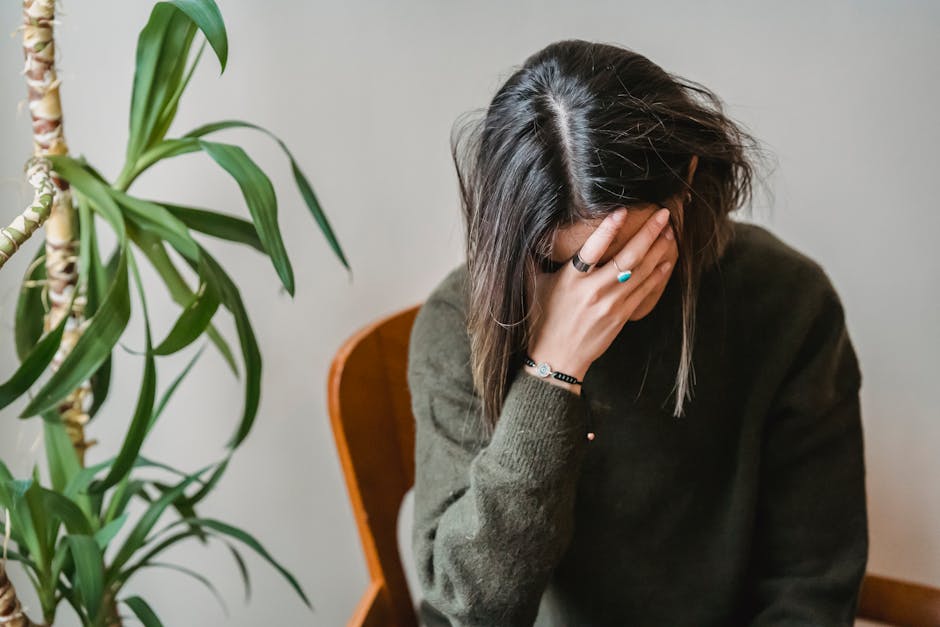 Is one more likely than
the other to take place? Number four, you have no clue if others can sense your anxiety. Do you worry about whether
Or can no other people tell when you’re feeling anxious? And then are you doubly
worried about how someone will react if they do find out
you’re having a panic attack? Since no people experience
anxiety the same way nor are any two situations the same, there’s no tangible way to tell
unless you tell someone that you’re not feeling well. If anything, your anxiety
is not as noticeable as you fear it to be. There are so many other restless, sweaty, awkward people in the world and everyone else is probably
too worried about themselves that they’re less likely to notice if you look a little
flushed or acted a little odd. Five, you can literally
worry yourself sick. Have you ever been so stressed
and worried that you felt like you might throw up or pass out? When you suffer from anxiety,
These severe reactions become normal which can put immense stress on your body over time. Mayo Clinic states that
symptoms such as headaches, heart palpitations, and
Gastrointestinal issues are common expressions of anxiety. Dealing with these over
an extended period of time can lead to complications such
as irritable bowel syndrome and other chronic disruptions
in the nervous system. Six, self-doubt slows you down socially. Do you long to be out and
about with your friends but your anxiety and doubt convince you to stay home instead? Socializing can be incredibly stressful for someone with anxiety, especially if you have
social anxiety disorder which is specific to
public or group settings. Between physical symptoms
and a racing mind, keeping up a conversation with
your friends can be tricky. Your brain interrupts with
intrusive thoughts and questions and you wonder if you’re doing it right. If you notice that you’re worrying about whether your anxiety makes
you come across as awkward or quiet, that’s okay. It’s good to be aware
of your effect on others but make sure you’re trying your best to be genuine and be you. Living in today’s society is
a lot of pressure already, so there’s no need to
double down on yourself. Seven, you find it hard to stay focused, you find
It is hard to stay focused. When your anxiety is bad, do
you struggle to concentrate? Like, when you must
reread a page in a book a couple of times over before you finally comprehend what you’re reading. Recent BBC research cites a 2011 study from the University of Notre Dame, which confirms that the
brain is designed to hold only so much information at once. If you’re taking up that
space with tons of what-ifs and worries, there won’t be much room left for anything else. Changing your thought patterns
won’t happen overnight but it’s certainly possible. It will likely take some trial and error to find what works for you
but practicing mindfulness, getting exercise, and avoiding multitasking are a few good places to start. And number eight, yes, you can have anxiety
about your anxiety. Have you ever heard of agoraphobia? The UK National Health
Service defines agoraphobia as a fear of being in
situations where escape might be difficult or that
help wouldn’t be available if things go wrong. Most people who suffer from this condition practice avoidance. Some might refuse to take
public transportation or be in crowded or open spaces, while others may not
leave their house at all. Avoidance aims to protect you from danger, panic, and even embarrassment. Did you relate to any of these scenarios? Tell us about it in the comments below. Anxiety is tough but so are you. If you have any other tips that
help you with your anxiety, share them in the comments below. If you found this video
helpful, please like and share this video with someone who can benefit from it too. The studies and references used are listed in the description below. Don’t forget to hit the subscribe button and the notification bell icon
for more psych2 go videos. Thank you for watching and
We’ll see you next time.As found on YouTubeAFFILIATE MASTERY BONUS: 6-Week LIVE Series Has Begun! FunnelMates $46.⁹⁵ Replays are Instantly Available. Want A Profitable Mailing List But Not Sure Where To Begin? We’ll Guide You, Equip You, and even PAY You Cash To Do It!
Is one more likely than
the other to take place? Number four, you have no clue if others can sense your anxiety. Do you worry about whether
Or can no other people tell when you’re feeling anxious? And then are you doubly
worried about how someone will react if they do find out
you’re having a panic attack? Since no people experience
anxiety the same way nor are any two situations the same, there’s no tangible way to tell
unless you tell someone that you’re not feeling well. If anything, your anxiety
is not as noticeable as you fear it to be. There are so many other restless, sweaty, awkward people in the world and everyone else is probably
too worried about themselves that they’re less likely to notice if you look a little
flushed or acted a little odd. Five, you can literally
worry yourself sick. Have you ever been so stressed
and worried that you felt like you might throw up or pass out? When you suffer from anxiety,
These severe reactions become normal which can put immense stress on your body over time. Mayo Clinic states that
symptoms such as headaches, heart palpitations, and
Gastrointestinal issues are common expressions of anxiety. Dealing with these over
an extended period of time can lead to complications such
as irritable bowel syndrome and other chronic disruptions
in the nervous system. Six, self-doubt slows you down socially. Do you long to be out and
about with your friends but your anxiety and doubt convince you to stay home instead? Socializing can be incredibly stressful for someone with anxiety, especially if you have
social anxiety disorder which is specific to
public or group settings. Between physical symptoms
and a racing mind, keeping up a conversation with
your friends can be tricky. Your brain interrupts with
intrusive thoughts and questions and you wonder if you’re doing it right. If you notice that you’re worrying about whether your anxiety makes
you come across as awkward or quiet, that’s okay. It’s good to be aware
of your effect on others but make sure you’re trying your best to be genuine and be you. Living in today’s society is
a lot of pressure already, so there’s no need to
double down on yourself. Seven, you find it hard to stay focused, you find
It is hard to stay focused. When your anxiety is bad, do
you struggle to concentrate? Like, when you must
reread a page in a book a couple of times over before you finally comprehend what you’re reading. Recent BBC research cites a 2011 study from the University of Notre Dame, which confirms that the
brain is designed to hold only so much information at once. If you’re taking up that
space with tons of what-ifs and worries, there won’t be much room left for anything else. Changing your thought patterns
won’t happen overnight but it’s certainly possible. It will likely take some trial and error to find what works for you
but practicing mindfulness, getting exercise, and avoiding multitasking are a few good places to start. And number eight, yes, you can have anxiety
about your anxiety. Have you ever heard of agoraphobia? The UK National Health
Service defines agoraphobia as a fear of being in
situations where escape might be difficult or that
help wouldn’t be available if things go wrong. Most people who suffer from this condition practice avoidance. Some might refuse to take
public transportation or be in crowded or open spaces, while others may not
leave their house at all. Avoidance aims to protect you from danger, panic, and even embarrassment. Did you relate to any of these scenarios? Tell us about it in the comments below. Anxiety is tough but so are you. If you have any other tips that
help you with your anxiety, share them in the comments below. If you found this video
helpful, please like and share this video with someone who can benefit from it too. The studies and references used are listed in the description below. Don’t forget to hit the subscribe button and the notification bell icon
for more psych2 go videos. Thank you for watching and
We’ll see you next time.As found on YouTubeAFFILIATE MASTERY BONUS: 6-Week LIVE Series Has Begun! FunnelMates $46.⁹⁵ Replays are Instantly Available. Want A Profitable Mailing List But Not Sure Where To Begin? We’ll Guide You, Equip You, and even PAY You Cash To Do It!  ☃in 5-10 Minutes A Day Using Automation Software and our Time-Tested Strategy See How Your New Site Can Be Live In Just 27 Seconds From Now!
☃in 5-10 Minutes A Day Using Automation Software and our Time-Tested Strategy See How Your New Site Can Be Live In Just 27 Seconds From Now!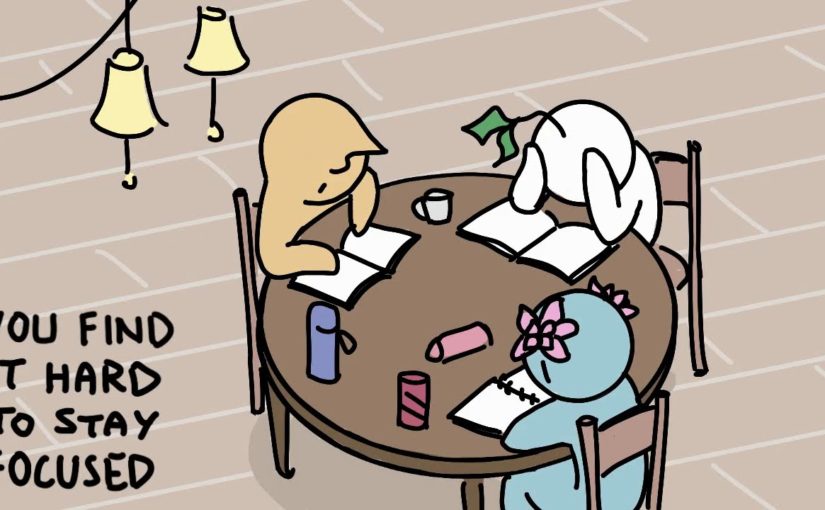
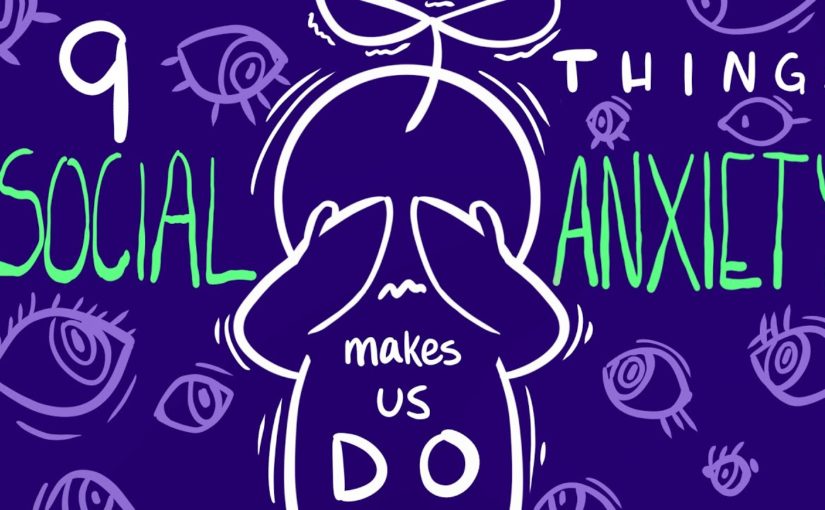
 The last thing they want
is to come off as awkward, fumbling, or boring. You’ve likely felt this way at some point throughout your life, whether it’s the desire
to fit in with friends or make a good impression
on a potential employer, with social anxiety however, this pressure to perform
feels constantly heavy and can lead to full-blown panic attacks when in social or
performance-based situations. Number six is feeling lonely, even when you’re surrounded by people. People with social anxiety
can share this feeling with those who battle depression and other mental illnesses as well. So, unfortunately, a lot
of people can relate to this isolating feeling. When social anxiety keeps you
from being your true self, it can be difficult to
feel included at all. It’s frustrating to be close to others, but not be able to connect
with them comfortably. If you’re struggling
to properly communicate and are extremely hesitant
to even start a conversation, that adds to your feelings of loneliness, even when you’re surrounded by others. Number seven, clenching your teeth and other physical discomforts. You feel shaky or lightheaded when faced with a social situation. Does your heart rate speed
up, or do your hands tremble? The stress that comes with social anxiety can manifest through physical symptoms. Many of the symptoms are
signs of nervousness, such as sweating, flushing,
and feeling shaky. According to the Mayo Clinic, you might also be dealing
with muscle tension, feeling that your mind has gone blank, or having trouble catching your breath. Number eight, obsessing over how you look. When you’re constantly worried about how others perceive you, you’re likely to be concerned
with how you look as well. You might have a distorted body image and think that you’re less
physically attractive. Your thoughts can flit from
your hair to your clothes or flaws in your skin, thinking
that it’s just all wrong. In an attempt to feel
comfortable in your skin, you might spend an inappropriate
amount of time and money on fixing your appearance, such as shopping for better clothes, getting high-end beauty
products, or going on diets if you think you’re overweight. And number nine, you
feel more like yourself around the people you’re comfortable with. You think you’re picky about
who you spend time with and triumph over shyness, conquering social anxiety disorder, Dr. Marie B. Stein and John R. Walker discuss behavior in children
called selective mutism. This is when a child
speaks and acts normally around select individuals,
but is completely silent around everyone else, or when
placed in certain situations, this is a more extreme example, but it shows how those with social anxiety are more likely to relax and open up around people they already know and trust. Do you or anyone you know resonate with any of these points
mentioned in this video? If you’re concerned about
social anxiety disorder, we encourage you to speak with
a mental health professional, they can help you overcome any fears or debilitating problems you might have. If you enjoyed watching this
video, give us a thumbs up and share it with someone who
might find it helpful as well. The studies and references
used in this video are listed in the description below. Don’t forget to hit the subscribe button for more Psych2go videos and as always, thanks for watching, and we’ll see you next time.
The last thing they want
is to come off as awkward, fumbling, or boring. You’ve likely felt this way at some point throughout your life, whether it’s the desire
to fit in with friends or make a good impression
on a potential employer, with social anxiety however, this pressure to perform
feels constantly heavy and can lead to full-blown panic attacks when in social or
performance-based situations. Number six is feeling lonely, even when you’re surrounded by people. People with social anxiety
can share this feeling with those who battle depression and other mental illnesses as well. So, unfortunately, a lot
of people can relate to this isolating feeling. When social anxiety keeps you
from being your true self, it can be difficult to
feel included at all. It’s frustrating to be close to others, but not be able to connect
with them comfortably. If you’re struggling
to properly communicate and are extremely hesitant
to even start a conversation, that adds to your feelings of loneliness, even when you’re surrounded by others. Number seven, clenching your teeth and other physical discomforts. You feel shaky or lightheaded when faced with a social situation. Does your heart rate speed
up, or do your hands tremble? The stress that comes with social anxiety can manifest through physical symptoms. Many of the symptoms are
signs of nervousness, such as sweating, flushing,
and feeling shaky. According to the Mayo Clinic, you might also be dealing
with muscle tension, feeling that your mind has gone blank, or having trouble catching your breath. Number eight, obsessing over how you look. When you’re constantly worried about how others perceive you, you’re likely to be concerned
with how you look as well. You might have a distorted body image and think that you’re less
physically attractive. Your thoughts can flit from
your hair to your clothes or flaws in your skin, thinking
that it’s just all wrong. In an attempt to feel
comfortable in your skin, you might spend an inappropriate
amount of time and money on fixing your appearance, such as shopping for better clothes, getting high-end beauty
products, or going on diets if you think you’re overweight. And number nine, you
feel more like yourself around the people you’re comfortable with. You think you’re picky about
who you spend time with and triumph over shyness, conquering social anxiety disorder, Dr. Marie B. Stein and John R. Walker discuss behavior in children
called selective mutism. This is when a child
speaks and acts normally around select individuals,
but is completely silent around everyone else, or when
placed in certain situations, this is a more extreme example, but it shows how those with social anxiety are more likely to relax and open up around people they already know and trust. Do you or anyone you know resonate with any of these points
mentioned in this video? If you’re concerned about
social anxiety disorder, we encourage you to speak with
a mental health professional, they can help you overcome any fears or debilitating problems you might have. If you enjoyed watching this
video, give us a thumbs up and share it with someone who
might find it helpful as well. The studies and references
used in this video are listed in the description below. Don’t forget to hit the subscribe button for more Psych2go videos and as always, thanks for watching, and we’ll see you next time.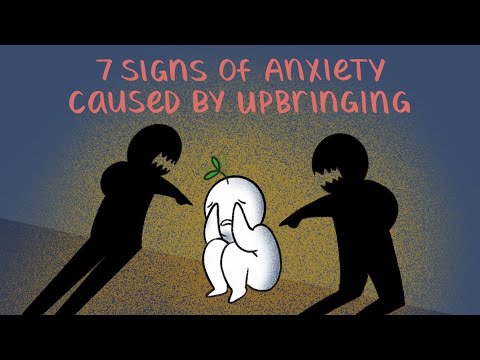
 Conditioned by judgmental parents at an early age. You may struggle with worry and fear of what others think about you. Their emphasis is on the opinion of others instead of on social initiatives and family sociability. This may lead to social anxiety. #5 You are overly cautious. Did your parents tend to constantly check on you when you’re not around them? If you have overprotective parents,
there’s a chance that you may be overly cautious. This is because having overprotective parents may condition you at a young age to be wary of everything. It can lead to having a certain worry and fear of things that are unknown to you. Although it can be beneficial to be overly cautious at times. It can also lead to a lot of anxiety. #6 You fear relationships. Do you find yourself scared about forming relationships? This fear may have stemmed from growing up in a separated family. Since you may fear that your current relationships will end up with the same outcome. Having neglectful parents could also cause you to fear relationships… …because it could make you think that your partner will neglect you in the same way. And #7 You doubt yourself. Have you ever said to yourself… What if I’m doing it wrong? Or am I making a mistake? Your parents’ constant criticism of your ability…can result in you developing constant self-doubt as you grow up. This will also cause you to have a higher risk of developing anxiety disorders in childhood. Do you relate to any of these signs? Let us know in the comments below! If you find this video helpful… Be sure to like, subscribe, and share this video with those who might benefit from it. The references and studies used in this video are added in the description below. Thanks for reading and we’ll see you in the next video!
Conditioned by judgmental parents at an early age. You may struggle with worry and fear of what others think about you. Their emphasis is on the opinion of others instead of on social initiatives and family sociability. This may lead to social anxiety. #5 You are overly cautious. Did your parents tend to constantly check on you when you’re not around them? If you have overprotective parents,
there’s a chance that you may be overly cautious. This is because having overprotective parents may condition you at a young age to be wary of everything. It can lead to having a certain worry and fear of things that are unknown to you. Although it can be beneficial to be overly cautious at times. It can also lead to a lot of anxiety. #6 You fear relationships. Do you find yourself scared about forming relationships? This fear may have stemmed from growing up in a separated family. Since you may fear that your current relationships will end up with the same outcome. Having neglectful parents could also cause you to fear relationships… …because it could make you think that your partner will neglect you in the same way. And #7 You doubt yourself. Have you ever said to yourself… What if I’m doing it wrong? Or am I making a mistake? Your parents’ constant criticism of your ability…can result in you developing constant self-doubt as you grow up. This will also cause you to have a higher risk of developing anxiety disorders in childhood. Do you relate to any of these signs? Let us know in the comments below! If you find this video helpful… Be sure to like, subscribe, and share this video with those who might benefit from it. The references and studies used in this video are added in the description below. Thanks for reading and we’ll see you in the next video!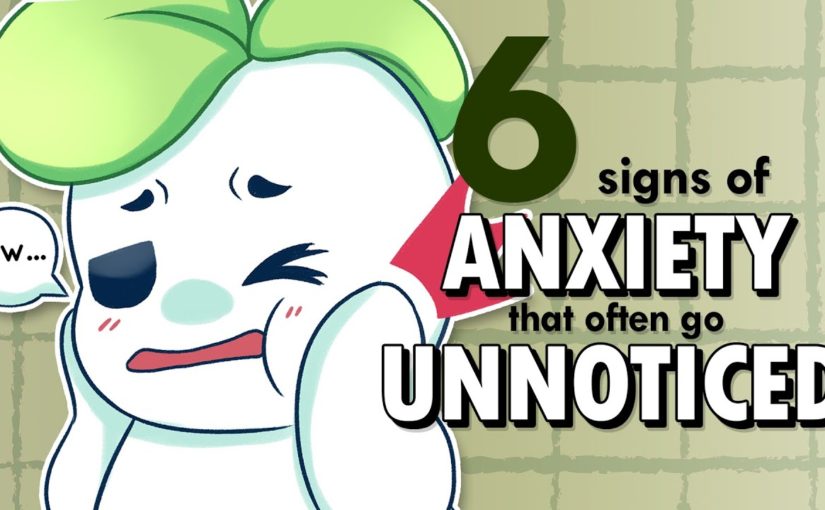
 Adrenaline helps you
redirect your blood flow so that most of it is sent
to your vital organs, like your heart and lungs. Consequently, your extremities
start to feel cold. Number four is irritability. Do you easily become irritated? Irritability is a common sign of anxiety. However, it’s a symptom we
often overlook or ignore. It’s a sign that you’re
overwhelmed with stress. Anxiety is associated
with hypersensitivity, meaning that you’ll be much more sensitive to your surroundings, which may cause you to feel
more irritated than usual. Number five is impulsive buying. Another sign of anxiety is impulsivity. In this case, impulse buying. However, impulsivity can manifest itself in many ways, such
as engaging in risky behavior. Impulsivity because of anxiety can be due to numerous factors. The main one is that your
orbital frontal cortex, another branch of your
limbic system, is affected. Studies found that anxiety
increases the blood flow to that region, which
consequently, increases activity. An increase in activity can lead to either impulse control issues,
hoarding, or impulse spending. Additionally, anxiety affects
your prefrontal cortex and makes it harder for you to make wise and thoughtful decisions. Impulse buying, as well as hoarding, are also forms of self-soothing. They provide a false sense
of comfort and security. If you do find yourself caving in and taking financial risks, please consider reaching
out to a therapist for help. And number six, crying easily. When was the last time you cried? One last sign that goes
unnoticed is crying easily. Inexplicably bouts of crying can mean you’re overwhelmed by the
situation you find yourself in. Not only can it be because
of a sensitivity to stress, but it can also be due to
your fight or flight response. The correct terminology is
fight, flight, or freeze. Feeling stuck or freezing
amidst a perceived threat can progress these overwhelming
feelings of stress. When you find yourself crying, attempt to relax by taking a deep breath. Then allow yourself to cry. Crying can release all of those feelings you may be holding onto. It may be great to find
additional ways to self-soothe when you’re feeling anxious as well. So have you experienced
any of these signs? I have. What are some self-soothing
behaviors that help you? I enjoy walking. Feel free to let us know
in the comments below. Anxiety is quite common
and can be manageable. If you ever need help or guidance reaching out to a therapist
or mental health professional can be a good idea. Feel free to like and share
this video if it helped you, or if you think it
could help someone else. Don’t forget to hit the subscribe button and notification bell icon
for more videos like this. And thanks for reading, take care.
Adrenaline helps you
redirect your blood flow so that most of it is sent
to your vital organs, like your heart and lungs. Consequently, your extremities
start to feel cold. Number four is irritability. Do you easily become irritated? Irritability is a common sign of anxiety. However, it’s a symptom we
often overlook or ignore. It’s a sign that you’re
overwhelmed with stress. Anxiety is associated
with hypersensitivity, meaning that you’ll be much more sensitive to your surroundings, which may cause you to feel
more irritated than usual. Number five is impulsive buying. Another sign of anxiety is impulsivity. In this case, impulse buying. However, impulsivity can manifest itself in many ways, such
as engaging in risky behavior. Impulsivity because of anxiety can be due to numerous factors. The main one is that your
orbital frontal cortex, another branch of your
limbic system, is affected. Studies found that anxiety
increases the blood flow to that region, which
consequently, increases activity. An increase in activity can lead to either impulse control issues,
hoarding, or impulse spending. Additionally, anxiety affects
your prefrontal cortex and makes it harder for you to make wise and thoughtful decisions. Impulse buying, as well as hoarding, are also forms of self-soothing. They provide a false sense
of comfort and security. If you do find yourself caving in and taking financial risks, please consider reaching
out to a therapist for help. And number six, crying easily. When was the last time you cried? One last sign that goes
unnoticed is crying easily. Inexplicably bouts of crying can mean you’re overwhelmed by the
situation you find yourself in. Not only can it be because
of a sensitivity to stress, but it can also be due to
your fight or flight response. The correct terminology is
fight, flight, or freeze. Feeling stuck or freezing
amidst a perceived threat can progress these overwhelming
feelings of stress. When you find yourself crying, attempt to relax by taking a deep breath. Then allow yourself to cry. Crying can release all of those feelings you may be holding onto. It may be great to find
additional ways to self-soothe when you’re feeling anxious as well. So have you experienced
any of these signs? I have. What are some self-soothing
behaviors that help you? I enjoy walking. Feel free to let us know
in the comments below. Anxiety is quite common
and can be manageable. If you ever need help or guidance reaching out to a therapist
or mental health professional can be a good idea. Feel free to like and share
this video if it helped you, or if you think it
could help someone else. Don’t forget to hit the subscribe button and notification bell icon
for more videos like this. And thanks for reading, take care.
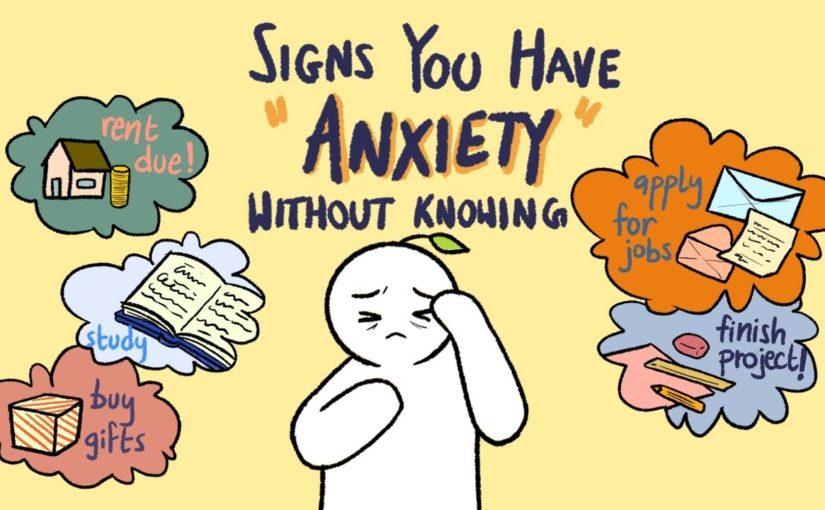


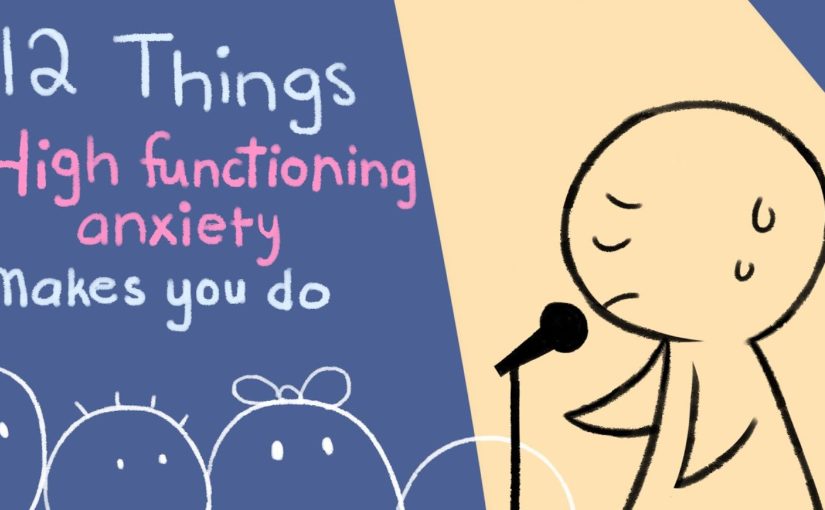
 So getting over it feels difficult Eight you constantly compare yourself to others It’s normal to occasionally compare yourself to others but those with high-functioning anxiety. Take it to an extreme Are you overly concerned with how you measure up against your peers? Do you constantly worry that you’re not fulfilling your full potential? No matter how much you accomplish. Do you never feel like it’s enough? If so, you might be struggling with high-functioning anxiety 9 You’re a constant people pleaser Do you work hard to make others feel happy, even if it comes at the cost of your well-being Do you feel like you’ll never be good enough until you attain it? Everyone’s approval If you have high-functioning anxiety you may have convinced yourself that the only way others will ever accept you is if you go above and beyond what everyone expects of You all the time. 10 You need to keep yourself busy all the time Now we’re not talking about creating great Renaissance artworks or intricate business plans We just mean busy not necessarily productive If you’re not busy you feel Restless and tense. So you try to occupy yourself with just about anything during your nails. Yes Alphabetizing your games. Okay, cleaning your perfectly working computer fan with a toothbrush It’s sure the truth is you don’t mind doing anything as long as it helps distract yourself from your thoughts and worries 11 You get very anxious whenever you think about the future What does the future mean to you for many in the future is the light of possibility something to eagerly look forward to? then for some, it can feel like Scrooge and that last spirit of Christmas who looked like the Grim Reaper if You’re not feeling hope but terror and dread for what’s to come This could be a sign of high-functioning anxiety can paralyze you with fear about the unknown and what’s not in your control it can keep you from truly living your life to the fullest because you always expect the worst to happen and 12 you always focus on the worst-case scenario Do you like to prep my prep? We mean do you say to yourself? Okay, so this is the worst possible outcome I’ll be ready for it. If I’m ready for it. I can handle anything else. Do you then continue to expect the worst-case scenario? They might be high-functioning anxiety laying the plans This might lead people to misjudge you as a pessimist because ultimately you may try to share with them your preparations Where you see anticipating and being proactive they see a downer Unfortunately being so prepared often doesn’t allow you to just enjoy the moment Do you relate to any of the things listed here living with high-functioning anxiety is never easy? But most people may not see the emotional toll it can have on a person if you’re starting to feel overwhelmed with your anxiety There are many professional certified resources to reach out to Please like share and subscribe to the site to go for more psychology content.
So getting over it feels difficult Eight you constantly compare yourself to others It’s normal to occasionally compare yourself to others but those with high-functioning anxiety. Take it to an extreme Are you overly concerned with how you measure up against your peers? Do you constantly worry that you’re not fulfilling your full potential? No matter how much you accomplish. Do you never feel like it’s enough? If so, you might be struggling with high-functioning anxiety 9 You’re a constant people pleaser Do you work hard to make others feel happy, even if it comes at the cost of your well-being Do you feel like you’ll never be good enough until you attain it? Everyone’s approval If you have high-functioning anxiety you may have convinced yourself that the only way others will ever accept you is if you go above and beyond what everyone expects of You all the time. 10 You need to keep yourself busy all the time Now we’re not talking about creating great Renaissance artworks or intricate business plans We just mean busy not necessarily productive If you’re not busy you feel Restless and tense. So you try to occupy yourself with just about anything during your nails. Yes Alphabetizing your games. Okay, cleaning your perfectly working computer fan with a toothbrush It’s sure the truth is you don’t mind doing anything as long as it helps distract yourself from your thoughts and worries 11 You get very anxious whenever you think about the future What does the future mean to you for many in the future is the light of possibility something to eagerly look forward to? then for some, it can feel like Scrooge and that last spirit of Christmas who looked like the Grim Reaper if You’re not feeling hope but terror and dread for what’s to come This could be a sign of high-functioning anxiety can paralyze you with fear about the unknown and what’s not in your control it can keep you from truly living your life to the fullest because you always expect the worst to happen and 12 you always focus on the worst-case scenario Do you like to prep my prep? We mean do you say to yourself? Okay, so this is the worst possible outcome I’ll be ready for it. If I’m ready for it. I can handle anything else. Do you then continue to expect the worst-case scenario? They might be high-functioning anxiety laying the plans This might lead people to misjudge you as a pessimist because ultimately you may try to share with them your preparations Where you see anticipating and being proactive they see a downer Unfortunately being so prepared often doesn’t allow you to just enjoy the moment Do you relate to any of the things listed here living with high-functioning anxiety is never easy? But most people may not see the emotional toll it can have on a person if you’re starting to feel overwhelmed with your anxiety There are many professional certified resources to reach out to Please like share and subscribe to the site to go for more psychology content.
